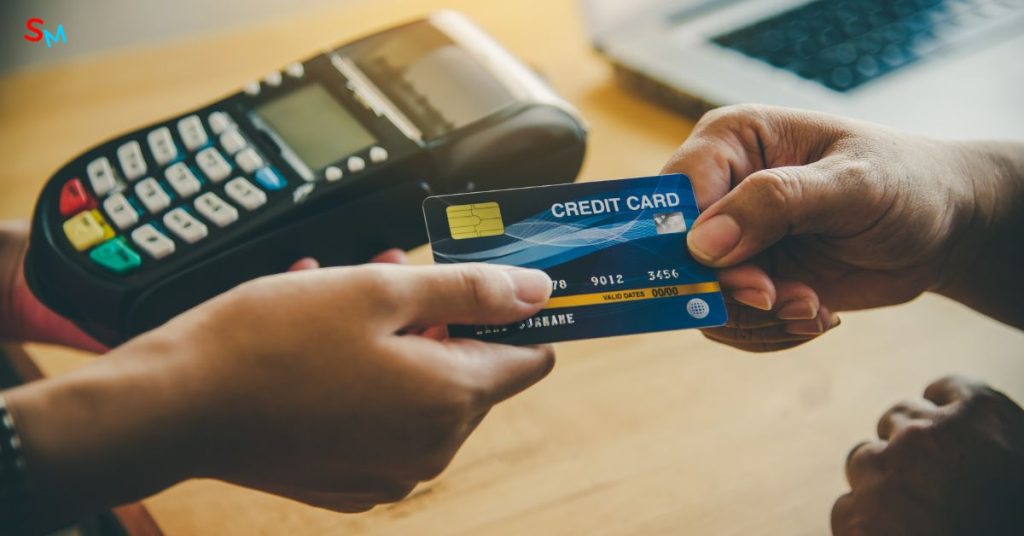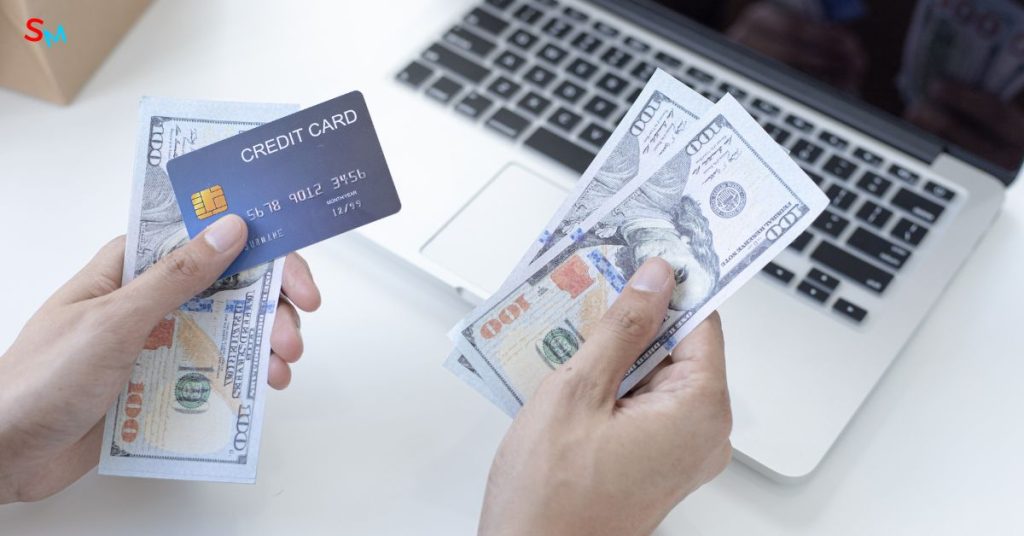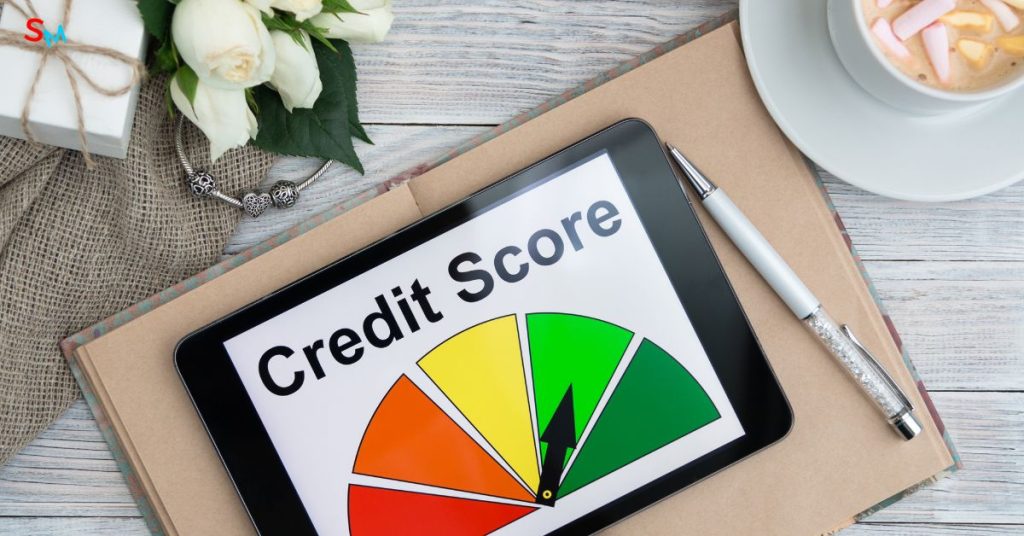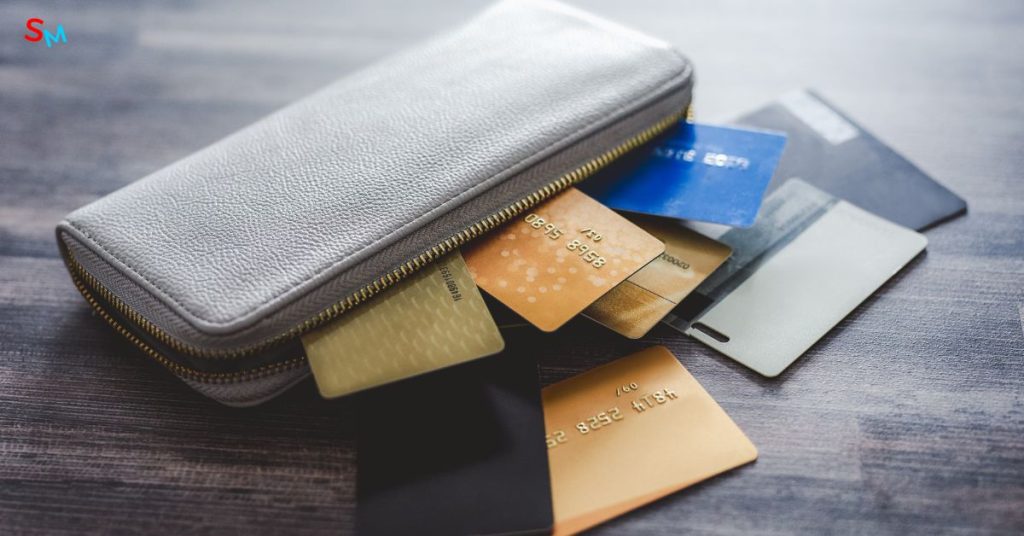Contents
- 1 What is a credit card?
- 2 How do payments on credit cards work?
- 3 How to get a credit card for the first time
- 4 5 Good things about credit card
- 5 10 Best Ways to use a credit card
- 5.1 1. Pay your balance in full each month
- 5.2 2. Use it for budgeted expenses
- 5.3 3. Take advantage of rewards programs
- 5.4 4. Use it for big purchases
- 5.5 5. Keep your credit utilization low
- 5.6 6. Set up autopay
- 5.7 7. Monitor your account regularly
- 5.8 8. Avoid cash advances
- 5.9 9. Use it for travel
- 5.10 10. Take advantage of introductory offers
- 6 6 Things you must never do when using a credit card
- 7 What should you try to avoid when using credit?
- 8 How often should you use your credit card?
- 9 How can I build my credit fast with a credit card-5 Simple ways?
- 10 How can a missing credit card affect me?
- 11 FAQs
- 11.1 How to manage a credit card wisely
- 11.2 What is the minimum payment on a credit card?
- 11.3 What should I do if I can’t make my credit card payment?
- 11.4 What is a credit limit and how is it determined?
- 11.5 Can I increase my credit limit?
- 11.6 How long does it take to build credit with a credit card?
- 11.7 What is a balance transfer and how does it work?
- 11.8 How do I dispute a charge on my credit card?
- 11.9 Can I use my credit card to withdraw cash from an ATM?
- 11.10 What is the grace period on a credit card?
- 11.11 How does my credit score affect my ability to get a credit card?
- 12 Conclusion
What is a credit card?
A credit card is a plastic card issued by a financial institution, such as a bank or a credit union, that allows you to borrow money to make purchases. When you use a credit card to make a purchase, you are essentially taking out a loan from the financial institution that issued the card. You are then required to pay back the borrowed amount, along with any interest charges, over a period of time.
For example, imagine that you want to buy a new video game that costs $60. If you have a credit card with a $1,000 limit and no outstanding balance, you can use the card to make the purchase. The credit card company will pay the $60 to the retailer on your behalf, and you will then owe the credit card company $60 plus any interest charges.
It’s important to remember that credit cards are not free money and that you have to pay back what you borrow. If you don’t pay your credit card bill on time, you can be charged late fees and your credit score may be negatively impacted. On the other hand, if you use your credit card responsibly by making payments on time and not borrowing more than you can afford to pay back, it can help you build a good credit score and make it easier to get approved for loans in the future.
Related Articles;
- 10 Practical Steps To Living Debt Free
- Where Should You Put Your Money To Earn The Most Interest?
- 7 Top Financial Moves To Make When Your Savings Reaches $100,000
How do payments on credit cards work?

When you use a credit card to buy something, you are borrowing money from the bank or financial institution that issued the card. You have to pay back the money you borrowed, plus some extra fees, within a certain amount of time. The bank will send you a bill each month, called a statement, that tells you how much you owe and when you need to pay it.
When you get your statement, you have a few options for how to pay. You can pay the full amount you owe, which means you won’t have to pay any extra fees. Or, you can pay just a small amount, called the minimum payment, which keeps you from getting into trouble with the bank, but you will still have to pay extra fees (called interest) on the amount you didn’t pay. If you only pay the minimum payment, it will take you longer to pay off what you owe and you will end up paying more in extra fees.
The extra fees (interest) you have to pay depend on how much you owe and how long you’ve had the debt. If you pay off what you owe quickly, you won’t have to pay as much extra. But if you take a long time to pay, the extra fees can really add up.
It’s important to pay your bill on time, or the bank will charge you extra fees for being late. And if you don’t pay your bill at all, the bank can take legal action against you and it can really hurt your credit score.
How to get a credit card for the first time

Getting a credit card for the first time can be a bit intimidating, but it’s a good way to start building your credit history and learn how to manage your finances. Here are the steps you can take to get a credit card for the first time:
1. Check your credit score
Before applying for a credit card, it’s a good idea to check your credit score. You can get a free credit report from the three major credit bureaus once a year at annualcreditreport.com. A good credit score can help you qualify for better credit cards and lower interest rates.
2. Research credit card options
There are many different credit cards available, so it’s important to do some research to find the best one for you. Look for credit cards that offer rewards, cash back, or other benefits that fit your spending habits and lifestyle. Also, check the interest rates and fees associated with each card.
3. Apply for a credit card
Once you’ve found a credit card that you like, you can apply for it online or in person. You’ll need to provide personal information such as your name, address, and Social Security number. If you’re under 21, you may need a co-signer such as a parent or a guardian to apply for a credit card.
4. Wait for approval
After you submit your application, the credit card issuer will review it and decide whether to approve or deny your application. If you’re approved, you’ll receive your credit card in the mail within a few days. If you’re denied, you can ask for the reasons why and work on improving your credit score before applying again.
5. Start using your credit card responsibly
Once you receive your credit card, it’s important to use it responsibly. Only use it for purchases that you can afford to pay off in full each month. This will help you avoid accumulating debt and paying high-interest charges. Also, make sure to pay your bill on time each month to avoid late fees and protect your credit score.
5 Good things about credit card

Credit cards can be a useful financial tool when used responsibly. Here are some of the good things about credit cards:
1. Convenience
Credit cards make it easy to pay for purchases without having to carry cash or write a check. You can use a credit card to pay for things online, over the phone, or in person.
2. Rewards and Benefits
Many credit cards offer rewards such as cashback, points, or miles for making purchases. Some credit cards also offer benefits such as travel insurance, extended warranties, and purchase protection.
3. Build a Credit History
Using a credit card responsibly can help you build a positive credit history, which can be helpful when applying for loans, renting an apartment, or even getting a job.
4. Emergency Expenses
A credit card can be a helpful resource in case of unexpected expenses or emergencies. Instead of having to come up with cash or liquidate assets, you can use a credit card to pay for the expense and pay it off over time.
5. Fraud Protection
Credit cards offer protection against fraudulent charges. If someone steals your credit card or uses it without your permission, you can report the charges and the credit card issuer will investigate and remove the charges if they are found to be fraudulent.
See how to use a credit card to get cash
10 Best Ways to use a credit card

1. Pay your balance in full each month
Paying your balance in full each month is one of the most important ways to use your credit card responsibly. When you pay your balance in full, you avoid paying interest charges, which can add up quickly and make it difficult to pay off your debt.
If you carry a balance on your credit card from month to month, interest charges will accrue on the balance, making it harder to pay off the debt over time. Over time, interest charges can accumulate to a significant amount, making it difficult to pay off your balance and increasing the overall cost of your purchases.
To avoid carrying a balance on your credit card, make sure to only charge what you can afford to pay off in full each month. If you find yourself unable to pay off your balance in full, it’s important to take steps to pay off your debt as quickly as possible to avoid paying unnecessary interest charges.
One way to pay off credit card debt quickly is to create a budget and prioritize your credit card payments. Make a list of your expenses and determine which ones are essential and which ones can be cut back. Then, allocate as much money as possible to paying off your credit card debt each month.
Another strategy is to transfer your credit card balance to a card with a lower interest rate. Many credit cards offer balance transfer promotions with 0% interest for a set period of time. This can help you pay off your debt more quickly without accruing additional interest charges.
2. Use it for budgeted expenses
Using your credit card for budgeted expenses is a great way to stay on top of your finances and avoid overspending. When you use your credit card for expenses that you have already budgeted for, such as groceries, gas, or bills, you can keep track of your spending more easily and avoid the temptation to overspend.
One of the advantages of using your credit card for budgeted expenses is that it can help you earn rewards or cash back. Many credit cards offer rewards programs that allow you to earn points, miles, or cash back for every dollar you spend. By using your credit card for budgeted expenses, you can earn rewards that can be redeemed for travel, merchandise, or statement credits.
Another benefit of using your credit card for budgeted expenses is that it can help you build credit. When you use your credit card responsibly and make timely payments each month, you can establish a positive credit history, which can help you qualify for loans and other financial products in the future.
To use your credit card for budgeted expenses, it’s important to have a clear understanding of your monthly expenses and create a budget that reflects your spending priorities. Then, you can use your credit card to make purchases within your budget, making sure to pay off your balance in full each month to avoid interest charges and debt.
It’s also important to monitor your credit card statements regularly to make sure that you are only charged for the purchases that you have made. If you notice any errors or unauthorized charges on your account, you should report them to your credit card issuer immediately to protect your finances.
3. Take advantage of rewards programs
Credit card rewards programs are designed to offer cardholders incentives for using their credit cards for purchases. Rewards can range from cash back, points, miles, or other perks like discounts on travel or merchandise.
Taking advantage of rewards programs is an excellent way to make the most out of your credit card spending. The key is to find a card with a rewards program that aligns with your spending habits and lifestyle. For example, if you travel frequently, you may want to choose a credit card that offers rewards for travel purchases like airfare, hotel stays, or rental cars.
Once you have selected a rewards credit card, it’s important to understand the details of the rewards program. Some rewards programs have restrictions on how rewards can be redeemed, minimum spending requirements, or expiration dates on earned rewards.
To maximize your rewards, it’s important to use your credit card for purchases that earn rewards, such as travel, dining, or gas. You may also want to take advantage of bonus categories that offer additional rewards, such as seasonal promotions or rotating categories.
To ensure that you don’t overspend or accumulate debt, it’s important to use your credit card responsibly and pay off your balance in full each month. This will help you avoid interest charges and fees that can offset the value of your rewards.
It’s important to keep track of your rewards balance and redeem your rewards before they expire. Some rewards programs have strict expiration dates or may have blackout dates for redemption, so it’s important to understand the terms and conditions of your program.
4. Use it for big purchases
Using your credit card for big purchases can offer several advantages. One of the primary benefits is that it can help you spread out the cost of the purchase over time, making it more manageable to pay off. Additionally, using your credit card for big purchases can offer consumer protection benefits, such as extended warranties or purchase protection.
When using your credit card for big purchases, it’s important to have a plan to pay off the balance in a timely manner. It’s also important to understand the terms and conditions of your credit card, such as the interest rate, fees, and any promotional offers that may apply.
If your credit card offers a promotional rate or zero-interest financing for a period of time, it can be tempting to make a big purchase to take advantage of the offer. However, it’s important to make sure that you can pay off the balance before the promotional period ends, as the interest rate may increase significantly after the promotional period.
Using your credit card for big purchases can also offer rewards or cash back, depending on the rewards program offered by your credit card. It’s important to compare the rewards offered by different credit cards to find the one that offers the most value for your spending habits.
Finally, when making a big purchase with your credit card, it’s important to keep track of your spending and monitor your credit card statements regularly. This can help you avoid overspending, catch any errors or unauthorized charges on your account, and keep your credit utilization rate low.
5. Keep your credit utilization low
Credit utilization is the amount of credit you are currently using compared to the amount of credit available to you. Keeping your credit utilization low is an important factor in maintaining a good credit score.
To keep your credit utilization low, it’s important to use your credit card responsibly and avoid carrying a high balance from month to month. Ideally, you should aim to keep your credit utilization below 30% of your available credit.
One way to keep your credit utilization low is to use your credit card for regular, small purchases and pay off the balance in full each month. This can help you establish a positive payment history and keep your credit utilization low, as your available credit will not be tied up in a large balance.
Another way to keep your credit utilization low is to increase your available credit. This can be done by requesting a credit limit increase from your credit card issuer or opening a new credit card account. However, it’s important to use this additional credit responsibly and not to increase your spending beyond what you can afford to pay off in full each month.
It’s also important to monitor your credit card statements regularly and dispute any unauthorized charges or errors on your account. This can help you avoid fraudulent activity and ensure that your credit utilization is accurate.
6. Set up autopay
Setting up autopay for your credit card can help ensure that you never miss a payment and avoid late fees or negative impacts on your credit score. Autopay is a feature offered by most credit card issuers that allows you to set up automatic payments each month.
To set up autopay, log in to your credit card account online or through the mobile app and look for the autopay option. You will need to provide your bank account information or a debit card number to link to your credit card account for payment.
Once you have set up autopay, you can choose to pay the minimum payment, the statement balance, or a specific amount each month. It’s important to choose a payment amount that you can afford to pay on time each month.
Autopay can help simplify your finances and ensure that you never miss a payment or incur late fees. It can also help improve your credit score by establishing a positive payment history.
However, it’s important to regularly monitor your credit card statements and bank account to ensure that your payments are being processed correctly. If you notice any errors or unauthorized charges, you should dispute them with your credit card issuer immediately.
7. Monitor your account regularly
Monitoring your credit card account regularly is an important part of using your credit card responsibly. By keeping a close eye on your account activity, you can spot potential fraud or unauthorized charges early and take action to protect your account and credit score.
To monitor your credit card account regularly, you should log in to your account online or through the mobile app at least once a week. Check your recent transactions to make sure they are accurate and you recognize all charges.
If you notice any suspicious or unauthorized charges, report them to your credit card issuer immediately. They can investigate the charges and take steps to protect your account from further fraud.
It’s also important to regularly review your credit card statements when they become available. This can help you keep track of your spending and ensure that your account balance is accurate.
Monitoring your credit card account regularly can also help you keep track of your credit utilization. As mentioned earlier, keeping your credit utilization low is an important factor in maintaining a good credit score. By monitoring your credit card balance regularly, you can avoid carrying a high balance and keep your credit utilization ratio low.
8. Avoid cash advances
A cash advance is when you withdraw cash from your credit card, usually from an ATM or a bank. While it may seem like a convenient way to get quick cash, it’s important to understand that cash advances come with high fees and interest rates, making them a costly way to borrow money.
Firstly, cash advances usually come with a transaction fee, which is typically a percentage of the amount you withdraw. This fee can be as high as 5% of the total amount, which means if you withdraw $500, you may have to pay a fee of $25 or more.
Secondly, cash advances usually come with a much higher interest rate than regular purchases made with your credit card. Interest rates on cash advances can range from 20% to 30%, or even higher, which means you’ll be paying a lot more in interest charges compared to regular purchases.
Finally, cash advances don’t have a grace period, which means that interest starts accruing immediately from the day you withdraw the cash. This means that even if you pay off the cash advance balance in full by the due date, you’ll still end up paying more in interest charges.
9. Use it for travel
Using a credit card for travel can be a smart way to earn rewards, protect your purchases, and avoid foreign transaction fees. To get the most out of your credit card while traveling, it’s important to choose a card that offers travel-related rewards such as airfare, hotels, and rental cars. You should also take advantage of travel benefits that some cards offer, such as airport lounge access, travel insurance, and no foreign transaction fees.
When using your credit card for travel expenses, it’s important to notify your card issuer before travelling. This will prevent your card from being flagged for suspicious activity. Simply let them know your travel dates and destinations so they can make a note on your account.
To keep your card secure while travelling, only use it at reputable merchants and avoid using it at sketchy or unfamiliar places. Also, be aware of your surroundings when entering your card information.
10. Take advantage of introductory offers
When you first sign up for a credit card, many issuers offer introductory offers to entice you to use their card. These offers can include 0% interest on purchases or balance transfers, bonus rewards points or miles, or waived annual fees for the first year.
Taking advantage of these offers can be a smart way to save money and earn rewards. For example, if you need to make a big purchase, using a card with a 0% interest introductory offer can allow you to pay off your purchase over time without accruing interest charges. Or, if you’re looking to transfer a balance from a high-interest card, taking advantage of a 0% balance transfer offer can save you money on interest charges.
Some cards also offer bonus rewards points or miles for signing up, which can help you earn rewards faster. And if you’re considering a card with an annual fee, look for one with a waived fee for the first year to save money.
It’s important to remember that these introductory offers typically only last for a limited time, so make sure to read the terms and conditions carefully and take advantage of the offer before it expires. Also, be aware that some offers may come with certain requirements, such as a minimum spend requirement or a balance transfer fee.
See how to use a credit card correctly
6 Things you must never do when using a credit card

While credit cards can provide numerous benefits, it’s important to use them responsibly to avoid financial problems. Here are some things you should never do when using a credit card:
1. Make late payments
Late payments can result in fees, interest charges, and damage to your credit score. Always pay your bill on time to avoid these consequences.
2. Max out your card
Using your credit card to the limit can hurt your credit score and lead to higher interest charges. It’s important to keep your credit utilization ratio low, ideally below 30%.
3. Use your card for cash advances
Cash advances typically come with high fees and interest rates, making them an expensive way to borrow money. Avoid using your card for cash advances unless it’s an emergency.
4. Spend beyond your means
Just because you have a credit card doesn’t mean you can afford everything. Stick to a budget and only charge what you can afford to pay back in full.
Never share your card number or security code with anyone you don’t trust. This can put your card and finances at risk.
6. Ignore suspicious activity
If you notice any suspicious activity on your credit card account, such as unauthorized charges, report it to your card issuer immediately.
What should you try to avoid when using credit?

When using credit, there are several things you should try to avoid in order to maintain healthy finances and a good credit score. Here are some key things to keep in mind:
1. High credit card balances
Keeping a high balance on your credit cards can lead to high interest charges and hurt your credit score. Aim to keep your credit utilization ratio below 30% and pay your balance in full each month.
2. Late payments
Making late payments on your credit accounts can result in fees, penalties, and damage to your credit score. Set up automatic payments or reminders to ensure you pay your bills on time.
3. Applying for too much credit
Applying for multiple credit cards or loans within a short period of time can hurt your credit score. Only apply for credit when you need it, and spread out your applications over time.
4. Ignoring your credit report
Your credit report contains important information about your credit history and is used to determine your creditworthiness. Check your credit report regularly and dispute any errors you find.
5. Co-signing for someone else
Co-signing for someone else’s loan or credit card can put your credit score and finances at risk. Only co-sign if you are willing and able to take on the responsibility if the other person defaults on the debt.
How often should you use your credit card?

The number of times you choose to use your credit card depends on your individual financial goals, budget, and credit utilization ratio. If your goal is to build your credit history, using your credit card regularly and making on-time payments can be beneficial in establishing a positive credit history and improving your credit score over time.
However, if you are concerned about keeping your credit utilization ratio low, it’s best to limit your credit card usage to budgeted expenses and avoid carrying a high balance on your card.
Additionally, taking advantage of rewards programs offered by your credit card company may encourage you to use your card for everyday expenses and big purchases.
Ultimately, how often you use your credit card should depend on your personal financial goals and budget, and as long as you are using your card responsibly, making on-time payments, and keeping your credit utilization ratio low, you can use your credit card as often as you need to.
How can I build my credit fast with a credit card-5 Simple ways?

Building credit fast with a credit card is possible, but it requires responsible use and time. Here are some tips for building credit quickly with a credit card:
1. Apply for a secured credit card
A secured credit card requires a security deposit, which serves as collateral for your credit limit. This can be a good option if you have little or no credit history.
2. Make on-time payments
Pay your credit card bill in full and on time every month. This is one of the most important factors in building a positive credit history.
3. Keep your credit utilization low
Try to keep your credit utilization ratio, or the amount of credit you are using compared to your credit limit, below 30%. This can help improve your credit score.
4. Use the credit card regularly
Use your credit card for small, budgeted expenses and pay off the balance in full each month. This can help show responsible credit card use and build your credit history.
5. Avoid applying for too many credit cards at once
Applying for multiple credit cards at once can negatively impact your credit score. It’s best to apply for one credit card at a time and only apply for cards you really need.
How can a missing credit card affect me?

Losing a credit card or having it stolen can have a number of negative consequences for your credit and finances. Here are some ways a missing credit card can affect you:
1. Fraudulent charges
If your missing credit card falls into the wrong hands, someone else can use it to make fraudulent purchases. This can result in charges on your credit card that you did not authorize, which can be difficult to dispute and can damage your credit score.
2. Late payments
If you are unable to pay your credit card bill on time because your card is missing, you may incur late fees and interest charges. This can also result in a negative impact on your credit score.
3. Identity theft
Losing your credit card can also put you at risk for identity theft. If someone gains access to your personal information through your credit card, they can use it to open new accounts or apply for credit in your name.
4. Inconvenience
Losing your credit card can also be inconvenient, as you may need to cancel the card and wait for a new one to arrive. This can impact your ability to make purchases and manage your finances in the short term.
FAQs
How to manage a credit card wisely
Managing a credit card wisely involves several key steps. First, it’s important to pay your balance in full each month to avoid interest charges and maintain a good credit history. You should also use your credit card for budgeted expenses and avoid overspending. Keeping your credit utilization low, monitoring your account regularly, and setting up autopay can also help you manage your credit card more effectively. It’s also important to avoid cash advances and high fees and to take advantage of rewards programs and introductory offers where possible. By following these tips and using your credit card responsibly, you can build good credit and improve your financial health over time.
What is the minimum payment on a credit card?
The minimum payment on a credit card is the smallest amount you can pay each month to keep your account current. It is usually a percentage of your total balance or a fixed amount, whichever is greater. It’s important to note that paying only the minimum amount will result in accruing interest charges and taking longer to pay off the balance.
What should I do if I can’t make my credit card payment?
If you can’t make your credit card payment, it’s important to contact your card issuer as soon as possible. They may be able to work out a payment plan or offer other solutions. Ignoring the problem can result in late fees, a penalty interest rate, and damage to your credit score.
What is a credit limit and how is it determined?
A credit limit is the maximum amount you can charge to your credit card. It is determined by several factors, including your credit score, income, and credit history. Your credit limit may be increased over time if you use your card responsibly and make payments on time.
Can I increase my credit limit?
Yes, you can often request a credit limit increase from your card issuer. This may involve a credit check and will depend on factors such as your income, credit score, and payment history. It’s important to use your credit card responsibly and pay on time to increase your chances of being approved for a limit increase.
How long does it take to build credit with a credit card?
Building credit with a credit card takes time and depends on several factors, such as your credit history, payment history, and credit utilization. Generally, it can take several months to a year or more to see a significant improvement in your credit score.
What is a balance transfer and how does it work?
A balance transfer is a process of moving debt from one credit card to another with a lower interest rate. This can help you save money on interest charges and pay off your debt more quickly. Balance transfers usually involve a balance transfer fee and may require good credit to be approved.
How do I dispute a charge on my credit card?
If you notice an unauthorized charge on your credit card or a charge that you don’t recognize, you should contact your card issuer immediately to dispute the charge. They will investigate the issue and work to resolve it.
Can I use my credit card to withdraw cash from an ATM?
Yes, you can use your credit card to withdraw cash from an ATM, but this is usually not recommended. Cash advances come with high fees and often have a higher interest rate than purchases.
What is the grace period on a credit card?
A grace period is the amount of time you have to pay your credit card bill in full without accruing interest charges. This typically lasts between 21 and 25 days from the end of your billing cycle.
How does my credit score affect my ability to get a credit card?
Your credit score is one of the key factors that card issuers consider when determining whether to approve your application for a credit card. A higher credit score can help you qualify for better credit cards with lower interest rates and more rewards.
Conclusion
A credit card can be a valuable tool if used wisely. By following the best practices outlined in this article, you can effectively manage your credit card, build credit, and even take advantage of rewards programs. Remember to pay your balance in full each month, use your card for budgeted expenses, take advantage of rewards programs and introductory offers, and keep your credit utilization low. By setting up autopay, monitoring your account regularly, and avoiding cash advances, you can ensure that you are using your credit card responsibly. With these tips in mind, you can enjoy the benefits of a credit card without falling into debt or damaging your credit score.
[…] Credit card tips: 10 Best ways to use a credit card […]